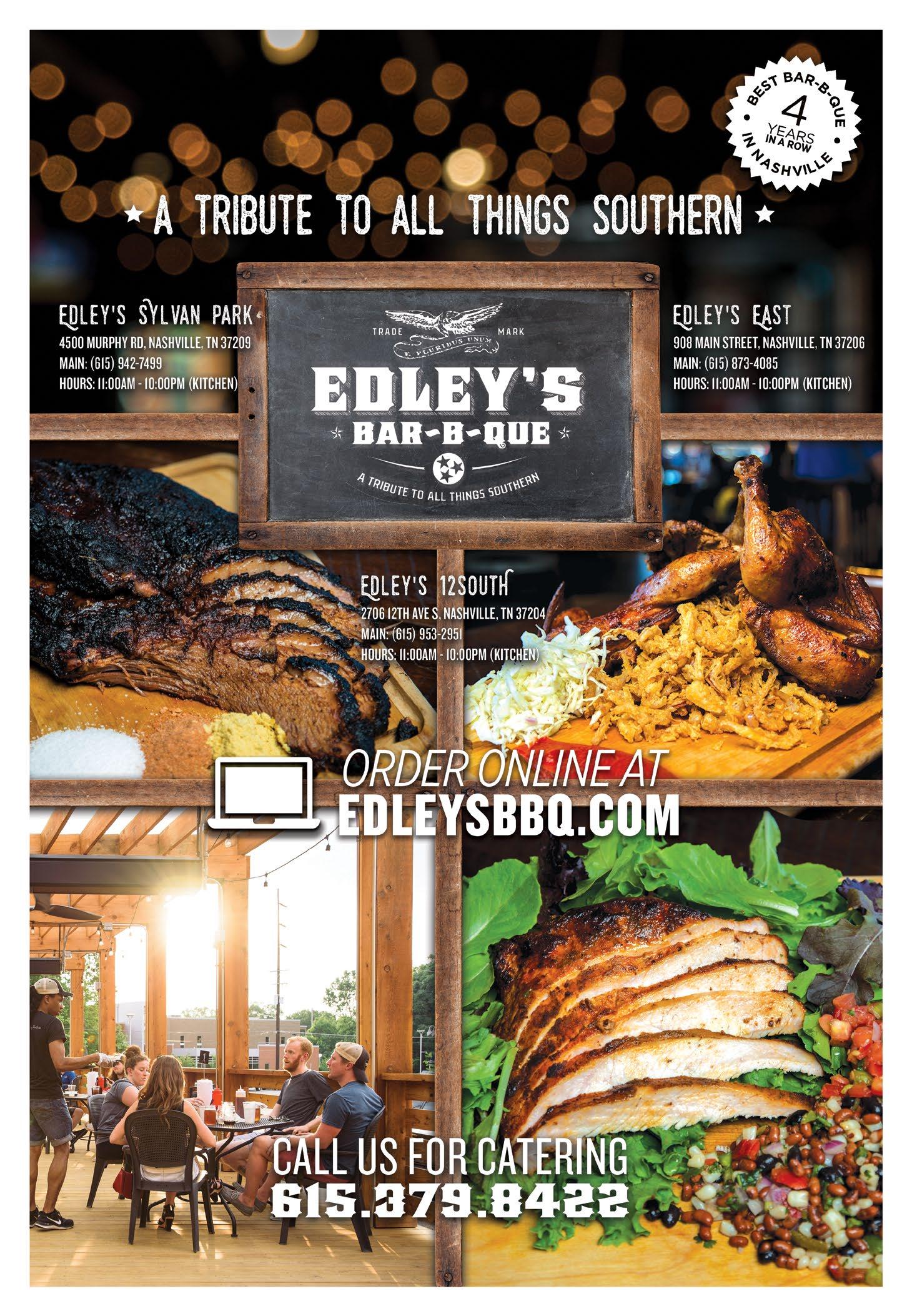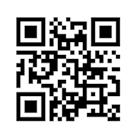






Contributor Board
Amber DuVentre, Chair Christine Doeg, Secretary Wade Nelson Jr., Treasurer Kerry Graham, Demetria Kalodimos, Robin Kimbrough-Hayes, Jim Shulman Drew Morris




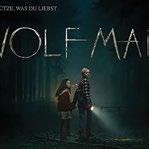
La Noticia, one of the leading Spanish-language newspapers in the nation, brings Spanish content to

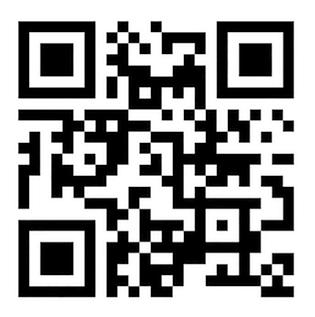

Contributors This Issue Norma B. • Chuck C. • BIll Carey • Mccollonough Ceili • Will Connelly • Angel F. • Chris Scott F. • FreePressGMA • Christopher L. • Lindsey Longoria • J. Holly McCall • Mr. Mysterio • Mark N. • Joe Nolan • Howard P. • Jim P. • James “Shorty” R. • Judith Tackett • Carli Tharp • Lora V. • Tommy W.
Contributor Volunteers Ann Bourland, Andrew Kuluk, Andy Shapiro, Deborah Narrigan, Jamie Dore, Logan Ebel, Loren Montoya, Marissa Young, Matthew Murrow, Michael Reilly, Susan Richter, Tyler Samuel
Haggard & Linda Bailey Co-Editors
Brandon Battle Housing Stability Guide
Laura Birdsall Copy Editor
Holly Bowman Director of Development
Jesse Call Operations Consultant
Sarah Champion Housing Stability Guide


Venmo has canceled our account, but you can still pay using Square! You must identify your vendor so we know where to send the payment. Here's how:
Use your phone camera and scan the code on this page or on the top left corner of the cover of this paper. This will take you to the landing page: thecontributor.org/pay.
After clicking “checkout,” type your vendor's name and four-digit badge number in the “Required” field. This allows us to know which vendor to pay.
Type in the amount you wish to pay. The paper costs $2. Tips are welcomed. Vendors get paid by the next business day.
Please consider paying a minimum of $2.37 for one newspaper in consideration of the Square processing fee.


Since The Contributor started in 2007, more than 3,200 different vendors have purchased $2.3 million worth of The Contributor and sold over six million copies, generating over $15 million in income for themselves.
In 2019, our C.O.V.E.R. Program (Creating Opportunity for Vendor Employment, Engagement, and Resources) was the natural expansion of our mission of removing obstacles to housing. We now offer full case management, assistance with housing and rental expenses, addiction recovery, health insurance, food benefits, and SSI/SSDI
Ree Cheers Director of Program Operations
Will Connelly Executive Director
Cathy Jennings Director of Finance
Andrew Krinks Editor Emeritus
Caroline Lindner Vendor Program Manager
Lindsey Longoria Housing Stability Guide
Zero Mannino Housing Stability Guide
Raven Nye Director of Quality and Training
Jay Smelley Administrative Coordinator
Andrew Terry IV Program Operations Team Lead
Carli Tharp Housing Stability Guide
Barbara Womack Advertising Manager
Will Connelly, Tasha F. Lemley, Steven Samra, and Tom Wills Contributor Co-Founders
Editorials and features in The Contributor are the perspectives of the authors. Submissions of news, opinion, fiction, art and poetry are welcomed. The Contributor reserves the right to edit any submissions. The Contributor cannot and will not endorse any political candidate. Submissions may be emailed to: editorial@thecontributor.org
Requests to volunteer, donate, or purchase subscriptions can be emailed to: info@thecontributor.org Please email advertising requests to: advertising@thecontributor.org
The Contributor P.O. Box 332023, Nashville, TN 37203 Vendor Office: 615.829.6829





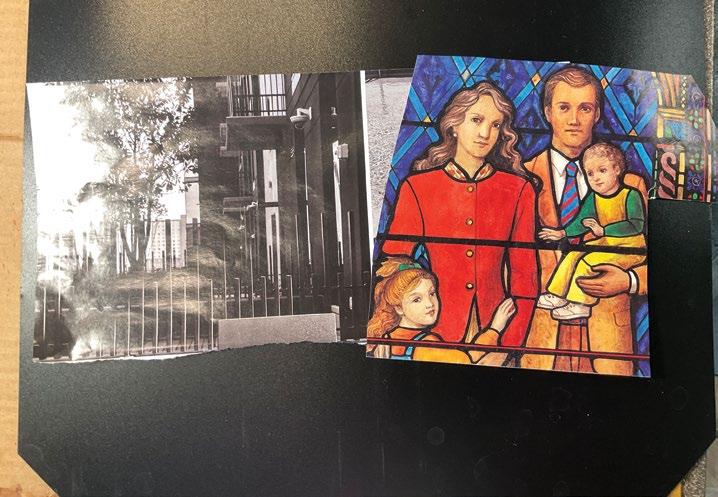
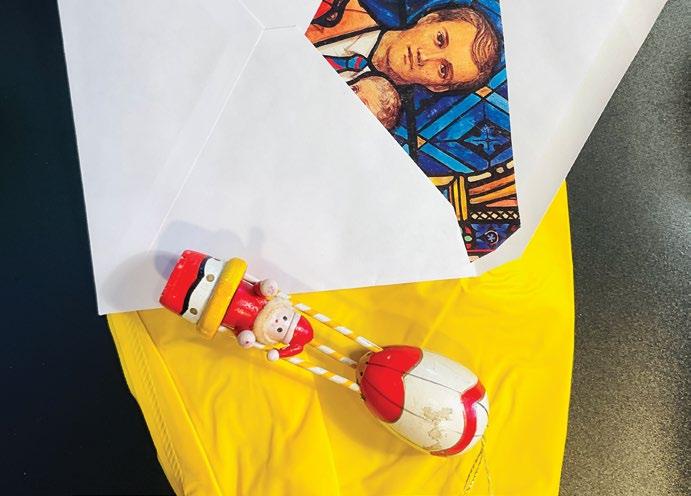
Kudos to Paul Collins of Stagger Press for setting up a zine press so he could initiate Contributor vendors as magazine artists! He was aiming for 12 zines this year, but so far we are at 30 and counting.
Why is that, you might ask. The main reason is, everyone gets to tell their story exactly how they want to. with pictures and graphics. The pictures and graphics really make the zines. Also, I think there’s a lot of frustrated creativity in the homeless and former homeless community. We’ve had
years of just trying to scrape by and so it’s really fun to just do something unique while having an impact. Our customers really love these zines also.
We’ve been attending the Makers Bazaar at the Packing Plant as part of the art crawl for the Wedgewood-Houston neighborhood. We would love to see you at a future event!
Some of you may remember zines from the ‘90s. The pre-Internet era. They were a great way for people to communicate with each other across neighborhoods and communities.
They had a strong message to give, as many of ours do. Some are just for fun. Some more are for getting the word out. Just like a newspaper, only more exciting to produce.
We have built quite a community around the zine makers. Volunteer artists, staff, volunteers and vendors are interacting on a very close level that leads to a lot of camaraderie and bonding.
What has truly been reinforced in this process is the fact that all staff and vol -
unteers at The Contributor allow homeless and formerly homeless participants to lead the conversation. This is like asking for housing first. It is so obvious, but how many times must we say it? We are people too, and everyone at The Contributor really lives by that.
Also keep your eyes peeled for us at the Nashville Comicon, and later in November, at the Arcade downtown. You can look us up on Instagram if you want the particulars.
BY TOMMY W., CONTRIBUTOR VENDOR
This is the story of how Nurse Emma came into my and my wife’s life. You’re probably wondering how she got the name Nurse Emma, but I’ll get to that in a minute. About five and a half years ago, three different cats where I live had kittens. They were running around everywhere. Me and Jamie, my wife, decided to get one.
First, we got Riley, Emma’s sister. When we brought her in she hid for about a week. She finally realized she was missing out on
all the fun. Then, we decided to get another one. I went outside and Emma was sitting on the trash can. I almost did not get her because she looked like she had something on her face. Emma was a Tortoiseshell cat and what I had seen on her face was just part of her markings. Emma’s first nickname was “Miss Squeaky” because when she mewed she would squeak and Riley’s nickname is “Miss Squokey” because she has a sinus problem and makes all kinds of sounds.
When Jamie was hit by a car a couple of years ago, when she got out of the hospital and came home, Emma never left her side. She stayed in the bedroom with her the whole time. Sometimes when I fed the cats, I would just go on and bring Emma’s food to the bedroom because that’s where she would be.
A few months ago she would not eat and she stayed hidden. We took her to the vet. They said she had a fever and gave her some pills to take. She was better for a while, but
on Sept. 3 she was real sick. We was hoping she would make it through the night, but she didn’t. My little baby crossed over the rainbow bridge that night, but not before we let her know how loved she was. I will always love and miss you, but Nurse Emma I want you to know that one day while you are playing in Heaven you will look up and see either me or your mamma and we will be all together again. Words cannot describe how I feel right now. I’ll love you always my little baby.
BY CHUCK C., CONTRIBUTOR VENDOR #0002
Providing overnight shelter for Nashville’s unhoused population actually predates the Room in the Inn program. During the winter of 1985, Dr. Wm. J. Bryan, pastor of the First Presbyterian Church of Nashville asked Rev. Carl R. Resenen of the Nashville Union Rescue Mission if his members could bus some homeless men to his church for a night time shelter in order to help relieve the overcrowded situation at the Nashville Mission. They were sleeping over 600 men, women and children at that time.
Bro. Resener accepted the offer and 15 men were sheltered there each night for the rest of the winter. The following year, Dr. Bryant asked to continue the night shelter
program. Two other pastors, Dr. Bill Sherman of Woodmont Baptist and Dr. Robert H. Spain of Brentwood Baptist joined the “Shelter in the Church” program. Forty five men were given shelter in local churches. By mid-winter 1986, the Salvation Army inaugurated the “Room in the Inn,” a shelter program of 27 churches. So my dear read-
ers, we owe Brother Carl R. Resener of the Nashville Union Rescue Mission a debt of gratitude for getting the churches involved in winter shelter.
Information for this article was found in “Crisis in the Streets” by Rev. C. R. Resener, 1988 Brodman Press, Nashville.
The reason I am working in the homelessness sector has a name: Earnest R.
People like me who have worked for a long time in the homelessness sector and have not experienced housing insecurity in their own lives, often have a personal story of why they got involved in this field.
Not too long ago, I shared the story of how Earnest shaped my entire life’s path with members of The Contributor’s vendor leadership team. They immediately encouraged me to write about it and share it on these pages.
In the late 1990s, a former Metro Police sergeant befriended a man who experienced chronic homelessness in the Vanderbilt area. She recruited several of her friends, including me, to form a support group around him. We all used to hang out at Café Elliston, later known as Café Coco, which was one of the places where Earnest sold his pencils to patrons. And let me tell you, Earnest was a salesperson.
Earnest loved his pickup truck. And even though the car’s registration was expired and his driver’s license was either missing or out of date, he drove that thing around everywhere. My friend had to bail him out multiple times and made him promise to stop driving it until he could do so lawfully again.
Once she got to know Earnest better, my friend discovered that he not only suffered from a severe and persistent mental illness hearing voices but also had some serious physical health issues that we eventually learned would only give him a few more months to live. He often slept in an abandoned home without electricity and running water somewhere off Clifton Avenue in North Nashville, the part of the city that was cut off by Interstate 40.
Rather than watch him die on the streets of Nashville or be forgotten in a neglected house, we organized a fundraiser to pay for his rent, utilities and other needs. Then we rented a place for him on Louise Avenue, a stones-throw from Café Elliston. While I had
Metro Public Health to host suicide preventention events
The Metro Public Health Department will host two events in Septmeber as part of National Suicide Awareness Month. On Sept. 10, public health professionals, mental health experts and those with firsthand experience will all be sharing messages of suicide prevention and awareness at the Lentz Public Health Center beginning at 9 a.m. This event called Hope is Available will host resources as well. On Sept. 13, the community is invited to an event centered around education and awareness of mental health and suicide. The event, at Woodbine Public Health Center at 224 Oriel Avenue, will have performances, educational resources and food. “In 2024 alone, more than 100 Davidson County residents lost their life to suicide,” said Dr. Sanmi Areola, Metro Public Health Department Director of Health. (Read a full interview
BY JUDITH TACKETT
barely enough money to pay for my own rent, I agreed to sign his lease. The landlord knew what we were doing, and thanks to working with a rather stubborn police sergeant, he sanctioned our approach.
Once Earnest was in housing, we worked as a group with my friend being the main coordinator. We took rotations to check in on him, help with doctor’s appointments, assisted with household chores, grocery shopping, meals, etc. In short, we did Housing First before it was a nationally adopted best-practice program.
Earnest knew where to get the best furniture out of dumpsters, and he could read people like no other. He was a philosopher, a raconteur and a keen observer. I remember sitting on the stoop of the Café one day and listening to the wildest story he clearly made up in an attempt to shock me. In hindsight, he used that time to learn more about me.
I don’t know what he learned about me. He never shared. But one thing was for sure, he knew I had zero street smarts and would drive him to just about anywhere in the city he wanted to go to — especially those areas that the police officers of our group would have denied him.
Soon after Earnest passed away, I took a job as a daily news reporter and as part of the beat I developed, I felt I had a responsibility to help ensure those folks had a voice somewhere. I made it a habit to write at least one article per month about homelessness.
Eventually I covered the task force that created the Metropolitan Homelessness Commission. I penned a story about the lack of voices with lived experience on that commission and covered the protest of a now defunct advocacy group of people with lived experience called the Nashville Homeless Power Project. Thanks to making their voices heard, the Nashville Homeless Power Project ensured that three members with lived experience were appointed to the new Metropolitan Homelessness
Commission.
While that was considered a great success, over the years, especially when I worked for Metro government myself, I have found that we generally don’t know how to truly integrate the voices of people with lived experience. We listen, we clap, then we move on with the agenda. We created more seats on commissions, built consumer advisory boards and took it upon ourselves to talk on behalf of the people we served. While this is part of elevating voices, the truth is, I still always felt that we are resorting to some form of tokenism with these governmental efforts that strive to appear inclusive.
Even today, when it comes down to truly listening and solving an issue brought to us that may be a little inconvenient for governments, boards, and other mainstream groups to implement, we push back and move on.
Many can speak sensibly about the homeless — and sorry, I am supposed to write “people who are unhoused” and use person-centric language — but when I go outside and listen to folks, I have never heard anyone say, “I am experiencing homelessness.” Ever.
It’s great that we have become more sensitive in our use of language. But we have still not learned to listen to people, especially when they tell us an inconvenient truth.
One current example is the fight of a consumer advisory board to get paid for their time, advising the community and government on homelessness approaches. Our government spends hundreds of thousands of dollars for homeless consultants — and even pays to fly them into town — but when it comes to paying people with lived expertise $20, they claim it is against the law.
Rather than finding a path for people to be heard, we squash them when they become inconvenient and demand that they are paid like anyone else. We claim the people in overpaid positions know better what’s best for them.
with Dr. Areola on Pg. 5.) “We at MPHD speak openly about the topic of suicide in the interest of reducing stigma, something that can go a long way towards encouraging more people to seek out help, hopefully leading to more of our family members, friends and neighbors living longer, healthier lives.” Mental health screenings can be made anytime by appointment at the Lentz Public Health Center. Appointments can be made by calling 615-340-2172. Further community resources can be found at https://linktr. ee/behavioralhealthwellness. Those suffering a mental health crisis are encouraged to call 988 to speak to a mental health professional.
Plaza Mariachi to Host Fiestas Patrias Celebration
Plaza Mariachi will host a “Fiestas Patrias” celebration on Sunday, Sept.14 to commemorate the Independence Day of Mexico, as well as
Guatemala, El Salvador, Honduras, Nicaragua and Costa Rica. The festivities will begin at 11 a.m. and go until 10 p.m. The day will include live music on three stages, folkloric dancing, a traditional ceremony, food vendors and various activities for the whole family. There will also be a children’s stage with character shows, inflatables and more.
As first reported by the Nashville Scene, the Metro Office of Homeless Services may face a financial audit. Metro Councilmember Ginny Welch filed a request to Metro asking that the city audit OHS. Her filing outlines several items alleging potential mismanagement, including “Financial mismanagement and/or potential fraud related to expenditures of both federal ARP and Metro funds as well as contract compliance; Lack of oversight of Metro
We are arrogant, and we keep supporting that arrogance.
In the past few months, I spent a lot of my time listening to the stories and experiences of people who were trying to obtain housing. Some have become friends, but all of them have become my teachers. I seek their advice when something I read does not seem right. We work on projects together to elevate each other’s voices and try to tell stories from the “unseen” perspective. Granted, I am the one who comes in with government facts, while my friends and advisors then counteract and teach me about what life on the streets really looks like.
Listening to the people who invited me into their encampments, their communities and their homes, has reminded me once again that having a voice is hugely important for all of us. If we do not feel heard, we lose a part of ourselves.
Earnest was a man of no means. He was the stereotypical homeless dude whom you saw frequently around the neighborhood. Yet, one thing about Earnest is that he knew who he was. He didn’t take himself or any of us too seriously. He gave us lectures on life — sometimes in chest, other times in all earnestness. It was through Earnest that I learned that without building relationships none of us have a voice. And without a voice, we feel lost — unheard and unseen.
That’s why it means the world to me when someone thanks me for helping them find their voice again. I think that was a gift that Earnest bestowed on me on the short path of life we did together. He taught me the importance of seeing people and hearing what they have to say.
Earnest was a man our society had thrown out onto the streets because, ironically, he heard voices in his head. Yet, once I listened to him, it changed the rest of my life.
You never know what happens when you learn to hear the voiceless.
facilities, including Strobel House, resulting in harm to residents and staff opening Metro to liability; Staffing and hiring mismanagement; Overall mismanagement resulting in the failure to improve housing outcomes despite a massive influx of federal and Metro dollars; and failure to deliver on its chartered obligations to coordinate Nashville’s homelessness response through shelter management, outreach, planning council support, and maintaining an inventory of third-party service providers.” In a statement, OHS told the Scene their work helped move 3,800 people into permanent housing and 512 individuals directly from outdoor encampments indoors. “We take the administration of taxpayer funds very seriously and we’ve achieved significant progress on our mission to serve Nashville’s most vulnerable neighbors with dignity, care, and accountability,” OHS spokesperson Demetris Chaney said in a statement.
Dr. Sanmi Areola is a veteran in public health, having served in leadership positions in Nashville, Johnson County, Kan., and in Prince George’s County, Md., before returning to Nashville in 2025 to lead the Metro Public Health Department (MPHD).
Areola holds a PhD in environmental toxicology and started his career doing a lot of research and lab work.
“Sometimes there is a divide between the lab work, the research, and how it translates into practical changes at the community level,” he said. “I started looking for an opportunity where I could use those scientific skills, training and learning in a way that is more impactful.”
In 2002, he saw a job description at MNPD, which he considered his opportunity to make a difference at the community level.
After being gone from Nashville since 2020, what made you return?
Nashville is really where I started my post-lab research career. It is where my kids grew up.
While I believe I was very helpful in Johnson County during the COVID years and did all the things that needed to be done to ensure that we protected the population from the impact of the once-in-a-generation pandemic. While I absolutely loved working there and creating conditions that people can be impartial, when the opportunity came to come back to Nashville, it was enticing.
The teams were here; the connections were here; I knew the department; I know the staff because in the 18 years I was here, I played a lot of different roles. There is very little in public health that I haven’t been directly involved in over the years. And so the connections in Nashville, the relationships in Nashville, the relationships with the community, with elected officials, policy makers and with the state, with nonprofits, it was very difficult to say no to coming back to Nashville.
In the almost seven months I’ve been back here, I am glad that I am back. So many opportunities to create conditions where everyone can be healthy. So many opportunities to improve health for everyone. So many opportunities to provider leadership within the department to make sure that the department is functioning optimally. So many opportunities to make sure we are providing the best customer service, not just internally but externally. So many opportunities to build even stronger trusting relationships with the community.
That’s why I’m here.
After your first seven months back, what are your top priorities for the department?
The key thing in public health is that no matter where you go or do public health, it is very important to understand the dynamics of the place and to understand what the key issues are. In Nashville, from my job interview to now, there are some key issues that are hugely important to the public, important to the Mayor, and important to the Board of Health, as well as elected officials.
BY JUDITH TACKETT
One is addressing the community safety, the community violence issue. And that’s really right on top of the things I am looking at. There is a lot of good work around there going on, I have to say. There are investments that are being made. The staff of the Metro Public Health Department have been working in that area.
And so, part of my goal in the next few months is to put that together in a way to create a Community Violence Plan for the county. If we have a five-to-ten-year plan that guides what we do and that will dictate where we will put our resources in as a county, that will help us focus a lot of the efforts.
The second area is around opioids. Opioid and substance use continue to negatively impact our residents. The good thing is that we do have some resources around that. We have the opioid settlement funds. So, part of my goal is to take a strong look at those and to make sure that we use these resources to build the right infrastructure for us, from educating early on to prevent the development of addition to ensuring that those who are already addicted also have resources that are available for them to reduce harm and offer treatment.
Those are two key things that I feel are important to the county.
The other part is that we continue to [focus] on infections related to tuberculosis (TB), syphilis and congenital syphilis, and HIV. The good thing again is we have so many available programs that are already impactful in those areas. So what we’re doing right now is understanding the data better and developing new strategies so we can change those trajectories.
The mission of the Metro Public Health Department is “to protect, improve and sustain the health and well-being of all people in Nashville and Davidson County.” That is a very broad mission statement and a big task. How do you tackle that?
I absolutely love the way you phrased that question. I am going to underscore the word “broad.” That’s public health. Public health is very broad. It is impacted by several factors.
Protecting, sustaining, improving health – these are things that we have to do collectively as a society, as a community. It is broader than the scope and the ability of just the Metro Public Health Department. It is why relationships with the community, with not-for-profit organizations, with academia, with other government entities are absolutely crucial.
For example, in Nashville, we have the Health and Wellness Council here that is working on aspects of things that we, as a Health Department, don’t necessarily do. That’s why we collaborate with entities like NashvilleHealth that is working on programs around [zip code] 37208. Those things are not the sole responsibility of the Health Department. It is our job though to be the convener in some cases. It is our job to act as the health strategist. But to do those things we must be intentional about involving the entire community.
Everything I’ve been talking about, from community violence to opioids to TB to HIV, we cannot deal with those things by ourselves. I have not seen a single not-for-profit organization that is not done out of a need in the community. They understand the community better than we do. They understand the needs. They understand the norms and the values. So to be effective, to be impactful, to be able to do all the things around protecting and improving and sustaining the health of residents, we have to be intentional in engaging the entire local public health system.
What are your priorities for the next five years?
I think the biggest part is building trusting and strong relationships with the community. I will give the example of COVID. We cannot afford to wait until we have a pandemic before we build relationships. We develop vaccines, and we’re ordering vaccines to the public, but we have communities that really don’t trust what we are doing because we haven’t been intentional in developing those relationships. So the biggest thing for me is building strong, trusting relationships with the community, and being intentional about those communities that are not typically at the table.
The second thing for us is to ensure that [we are] creating conditions that provide the opportunity for everyone to be as healthy as they possibly can. That means that we are intentional in our strategy. We’re intentional in our approach to ensure we are creating what I call health for everyone.
I’m just going to borrow [a phrase] from the Robert Wood Johnson Foundation, which is to build a culture of health. For example, if you want people to be able to be active, then you create conditions around their homes and neighborhoods that allow them to do that. You want sidewalks that are well-maintained, that are properly designed. You want people when they step outside their home not to be afraid for their safety.
That’s creating a culture of health.
If you want people to eat healthy, make sure they have the grocery stores that they can access, make sure that they have transportation to go see their children, to go to grocery stores, to go to their doctor’s appointment. So, it’s working with different entities to make sure that we are creating a culture of health in the county.
Again, those impact multiple health endpoints. And of course the first thing then is to address specific issues in the county: 1) Community wellness; 2) Opiate substance use; 3) TB; 4) Syphilis, HIV and other STI’s (sexually transmitted infections); and 5) address chronic diseases. They are still some of the leading causes of morbidity and mortality in the county, whether we are talking about cardiovascular health. Whether we are talking about diabetes or obesity. These are all tightly linked to all of the factors I mentioned before, like addressing issues of food deserts. But those are the things that we have [to figure out] and they are the things that are on top of the priorities for the next five years.
What is the most urgent issue for Nashville to tackle in terms of public health?
Community violence.
It’s difficult to say that one thing is more important than another because as a department, we do so many things. And so, when I comment on one program, it means that we have many other, very important programs we are doing under control.
However, you asked me what are the priorities for us in addition to other impactful things that we do, I would say community violence.
How do you define community violence?
It does mean a lot of things and as a community we have to define what it means to us. To some it’s gun violence. To others it’s addressing upstream factors of public safety. So that’s part of what we’re going to try to do as a community is [define what it is.]
Community violence, community safety is a very broad theme and there are probably multiple complements to that. I do not want to necessarily exclude any part of it. The question though for us is, what part of it do we want to focus on.
For me, upstream factors are important, and they impact all these multiple ways that we are defining that. If we create environments where our kids can thrive; if we create after school programs for our kids; if our kids have community centers and parks to play in, it wouldn’t matter that much how we are defining [community violence]. After all, for me, the kids are products of the environment in which we allow them to grow up in. So rather than necessarily narrowing myself into whatever definition people have out there, it is more of a focus on creating conditions that allow our residents and our kids to grow up in [healthy and safely]. If we do this … then whatever the vision people choose to focus on will be impactful in ensuring that our kids are trending to towards the positive experience rather than the negative experiences.
Do you think the city is ready for the next pandemic?
Yes, I believe we are ready because we have an experienced, well-trained workforce. We learned from this huge pandemic. In my seven months [back in Nashville], I am happy with the workforce, I am happy with the landscape. I’m happy to have the relationships that we built before, during, and after the pandemic. We continue to nurture those relationships. Those relationships with the community are important now. They’re even more important when we have to respond to events like [a pandemic].
And so there is the science piece, there is the relations piece, and I believe we are very well positioned to do both.
So science plays a role. But equally important, maybe even more important is to understand what the community is willing to tolerate. We have to take that into consideration in making public health decisions moving forward.
Written by Chris Scott Fieselman, Vendor #0015
When the winter’s done, And the snows have melt away. Before the rising of the sun, Go ahead and start your day. Time is of the essence when, So many depend on you. So, you climb up on that tractor again, And do what you’ve got to do.
There are fields that need to be plowed. Seeds that need to be sown. Plants in need of attention, Wouldn’t make it on their own. Pray for a little rain to fall, Every now and then. Taking care of us all are, The hands that work the land.
Agriculture,
Are you thankful for the farmer?
A little bit of soil, in the soul of the man. Food upon the table, Truly Grateful to them.
Agricultural Angels are, The hands that work the land.
Seventh generation farmer. You can see it in the jeans. Food for a nation comes from, The men and women behind the scenes. Taking and giving and making a living. “Lord let this be a Good Year.”
Heart and Soul with a Prayer and a Hope, And a whole lot of Blood, Sweat and Tears.
Agriculture, Are you thankful for the farmer?
A little bit of soil, in the soul of the man. Food upon the table, Truly Grateful to them.
Agricultural Angels are, The hands that work the land.
Now, when family and friends, All get together again, And we bow our heads to pray, On that Thanksgiving Day. Remember a prayer for the farmer out there, Who gave time and again?
Agricultural Angels are, The hands that work the Land.
Agriculture, Are you thankful for the farmer?
A little bit of soil, in the soul of the man. Food upon the table, Truly Grateful to them.
Agricultural Angels are, The hands that work the land.
Written by Chris Scott Fieselman, Vendor #0015
Grandpa was a farmer, Like his father before him. He took ill late one summer. I had to help get the harvest in.
Looking back, I’m glad I got to be with him, Before he passed away. He shared with me a piece of wisdom, I remember to this day.
He said, you’ve got to Plant Your Seeds in Spring, If you want to harvest anything. There’s a little bit, of farmer in us all.
Watch and see what The Good Lord brings. Life has its season for everything.
Summer’s gonna fade away, And the Autumn leaves will fall.
There’ll be a time for harvesting, When you Plant Your Seeds in Spring.
Grandfather’s Wisdom became my own. I planted patiently for many years.
Among the seeds that I have sown, My Faith, My Family and Career. Now, my daughter’s heading off to college, But before I set her free.
I share with her that piece of knowledge, That my grandfather shared with me.
He said, you’ve got to Plant Your Seeds in Spring, If you want to harvest anything.
There’s a little bit, of farmer in us all.
Watch and see what The Good Lord brings. Life has its season for everything. Summer’s gonna fade away, And the Autumn leaves will fall.
There’ll be a time for harvesting, When you Plant Your Seeds in Spring.
Got a letter from a friend I used to know, Haven’t heard from him in years. When I read the words that he wrote, My eyes filled up with tears. He said “My time on earth is almost through, Looking forward to Eternity. And the person I have to thank is you, Remember when you shared your Faith with me?” Yes, I do.
You’ve got to Plant Your Seeds in Spring, If you want to harvest anything. There’s a little bit, of farmer in us all.
Watch and see what The Good Lord brings. Life has its season for everything. Summer’s gonna fade away, And the Autumn leaves will fall.
There’ll be a time for harvesting, When you Plant Your Seeds in Spring.

ACROSS
1. *”Call of the Wild” dog
5. Lightning McQueen, e.g.
8. Island near Java
12. Popular hairdo in the 1960s and ‘70s
13. Governmental space agency, acr.
14. Meat in a casing
15. Larry Bird’s target
16. Narrative poem
17. Richard Bachman to Stephen King
18. *Sherman’s Mr. ____ 20. Fence plank
21. Small jar
22. FedEx competitor
23. *Tabaqui of “The Jungle Book”
26. Most vital part
30. a.k.a. Home of the Brave
31. Bewilder
34. Y’all
35. Phonograph media
37. Williams sister’s return
38. “Two mints in one” classic mints
39. Celt
40. Red carpet suit
42. Pirate’s turf
43. Flag on a ship, pl.
45. Solar system model
47. Like a fiddle
48. Sweating room
50. Chesterfield, e.g.
52. *National Crime Prevention Council’s mascot
54. “The Martian” (2015)
actor Matt ____
55. Verbal exam
56. Half-man, half-goat
59. Deflect
60. Charge a tax
61. Division word
62. Darn a sock, e.g.
63. Bo Peep follower
64. Long, long time
DOWN
1. Scrooge’s exclamation
2. E.T. transporter, e.g.
3. Photo editing option
4. 1/100th of a ruble
5. Mafia’s top dogs
6. “All joking ____”
7. Risqu
8. *Target’s mascot
9. “Si, mi chiamo Mimi” in La Boheme, e.g.
10. Law school test acronym
11. “____ a Wonderful Life”
13. Interstellar cloud
14. Flying stingers
19. Omani and Yemeni
22. Consume
23. TV Judy’s title
24. Of the Orient
25. Lawyers’ loads
26. Major European river
27. Relating to Scandinavia
28. Like a button, but more so
29. English homework
32. Swine and avian disease
33. *Maid Marian of Disney’s “Robin Hood” movie (1973)
36. *The Big Red Dog
38. ____copia
40. Blast maker, acr.
41. Sullenly
44. James Dean’s last movie (1956)
46. Basket-making fiber
48. Nut holder
49. Tequila source
50. “____ me a seat”
51. Damien’s prediction
52. Lawn pest
53. *Rubeus Hagrid’s faithful boarhound
54. Beaver’s edifice
57. Beehive State native
58. Us, in Mexico


Why Tennessee’s homelessness laws reveal more about us than about those we punish
As a street outreach worker, I visited a woman regularly who spent most of her daylight hours sleeping on an uncomfortable downtown bench. People questioned her motivation and said she was lazy. She wasn’t lazy at all. She was exhausted. She told me she had to stay awake at night to protect herself from men, men with homes, who preyed on her while she slept outside. They tried to assault her in the dark.
To survive, she flipped her days and nights.
When she tried to sleep during the day, various people rousted her: downtown ambassadors, police, downtown business owners and tourists. “People call me terrible things, the ‘N word’ even,” she said. She would try to keep her eyes open by feeding the pigeons or walking in circles. Soon, business interests labeled her a public health hazard. They requested that she be hospitalized against her will, not due to illness, but because the bread she fed to pigeons might attract rats. In effect, they were saying that she was at risk of harming herself and others because she was creating an unsafe environment by giving bread to birds.
BY WILL CONNELLY, EXECUTIVE DIRECTOR
This is the kind of contortion we go through when we would rather blame the person than face the world we have built. Instead of asking what kind of society forces a woman to live like this, we scold her for napping, for feeding the birds and for existing in a world that has seemingly gone mad.
Here in Tennessee, the cruelty has gone further. In 2022, our state became the first in the nation to make it a felony to camp or sleep on most public land, punishable by up to six years in prison and a $3,000 fine. We have criminalized exhaustion itself.
We do this constantly with homelessness. We spin theories about personal failure (poor choices, laziness, dependence, addiction, etc.) because it is easier than facing the policies and priorities that created our reality. Our policies and priorities have created wages that don’t match rent, healthcare you can’t afford, safety nets with so many large holes, and a housing market built for investors, not neighbors.
But compassion calls us to see the woman on the bench differently and ourselves differently when we judge her. Compassion is taught
across traditions. Jesus says he is found in “the least of these.” The prophets remind us that God sides with the poor, the stranger, the enslaved, the exiled and the oppressed. Buddhists practice tonglen, breathing in the suffering of others and breathing out relief. Even the woman on the bench turned the tables on me. She once looked me in the eye and said, “You are the goat, and I am the grass. You need me here on this bench to survive. Your paycheck depends on me being here.” It was her way of showing me that we are bound together in ways we don’t want to admit.
If Jesus walked the streets of Nashville today, would we recognize him? Or would we call him lazy for sleeping on a bench, a criminal for putting up a tent, or a hazard for feeding the birds? Jesus was unhoused, oppressed, poor and likely illiterate. He would not be welcomed into our boardrooms or legislatures. He would be demonized, rousted, ticketed and jailed. I see Jesus in that woman on the bench.
Being unhoused is not a moral flaw. Being unhoused is the predictable result of choices we have made collectively about housing, health-
care, wages, policing and whom we consider worthy of dignity.
So often you hear it asked why can’t they get it together? Why can’t they get a job?
The question is: Why do we allow systems that make survival itself a crime?
Compassion requires courage to confront unjust systems, demand policies that build homes instead of prisons and recognize our neighbors as fully human no matter their circumstance. When we shift from blame to compassion, we move closer to the kind of community envisioned by many faiths and philosophies: a place where the hungry are fed, the oppressed are lifted up, and the poor are not despised but honored as bearers of wisdom and dignity.
People without housing don’t need our suspicion, our tidy and self-serving theories, or our punishment. They need what we all need: safety, rest, companionship and a place to be and belong.
Nashville prides itself on hospitality. The real question is whether we will extend that hospitality to everyone.
We’re now accepting submissions for Non-Toxic Theology, a new column exploring faith and theology in ways that don’t suck — offering compassionate, thoughtful perspectives on homelessness and related issues. We welcome diverse voices and viewpoints, but reserve the right to publish only work that meets our editorial standards. Email your submissions to editorial@thecontributor.org.

BY NORMA B., CONTRIBUTOR VENDOR
I love all 4 seasons —
Winter, Spring, Summer, and Fall
But as I sit on the side of the road in the stifling heat
I find myself longing for the cooler temperatures of ANY other time of year
That’s true of most people I suppose
When the temperature outside feels like 100 degrees or more
We can’t wait for the chill of winter to come along and cool things down
How soon we forget ALL the layers of clothes we need to stay warm or just to leave the house
So many you can barely move
In the Fall our days often start off cool and crisp
The leaves show a variety of vibrant colors
Red yellow orange and even purple hues
That is until the wind begins to blow
And they fall to the ground
Everything is left dead and brown
As you look at the trees now empty and bare
You long for Spring when everything will bloom again
But wait, what is it that makes these beautiful things possible?
What makes them grow?
April showers bring May flowers or so they say
So along with the Spring season comes the rain
The amounts can range from a light mist to a monsoon
They can be forecasted well in advance
Or come up out of the blue
With little or no warning as to when they might occur
No matter the time or place
You can be sure they WILL come to a location near you!
So what can we learn from this?
Make the most of each day as it comes
No matter what the weather might be
It is subject to change
Here in Tennessee, who knows
You might even get to experience 2 seasons in 1 day!
BY LORA V., CONTRIBUTOR VENDOR
School is already started. The heat is still on. Already preseason football, the county fairs have started. It is the last hoorah of the summer. Time (maybe the last time) for swimming, boating, jet skiing, picnicing and grilling out.
So, have a blast and a few splash splash. Remember not to wear white after Labor Day.
BY ANGEL F., CONTRIBUTOR VENDOR
Holding on without words
No one i want to listen to this hurt
The pain in my heart that built up
No one to turn too
Empty eyes, soulless hearts
No one to trust to share my loss
Seven years gone and another seven years to come
What i have been through you shouldn’t know
Stronger in my silence numbing the pain
Hold back the tears
Some say to open up
Its almost impossible to open
The despair
Only share small
Some wonder why i went so low
Loosing the only love i know
Crying many nights
Wanting to take my life
2019 was the worse the start of the second seven years men devor my flesh and suck my very existence
Regaining confidence
Restoring what was lost
Why was it ok to let them treat me this way?
I pray for her heart her soul her life
A child in darkness lost
They tell her lies
They keep her from the light
There’s nothing else to say
Evil people competing to hurt me every day.
I want to escape get out of this place
Why did i come here ?
I wont stay for long
Im leaving soon.
Planning a new life
I hope i don’t see his face again
I have to tell my friend he showed up again
A nightmare a dream
Please
Wake me up
Tired of this loop
When is the time up?!
I’ve learned my lesson
I have a headache, i need a break
Please who listening to me?!
Save me for the evil ones
Give me peace
Vampires sucking my energy
Love bombing and charming
Hiding behind their masks.
I want to be alone
No expectations
Silence and contentment
Meditation and presence
Deep breath
“Eighteen
BY LINDSEY LONGORIA, CONTRIBUTOR HOUSING STABILITY GUIDE
A friend of mine always states that hugs don’t count, don’t have their intended effect, until at least eighteen seconds. No words exchanged. No interruptions.
Only loving murmurs. Clenching fingertips. Inhaling pheromones.
I don’t know if this is true. But I do believe we are healing his nervous system every time we embrace as someone who did not receive a lot of positive touch growing up.
And I think maybe that’s what friendship is. What community is all about.
Embracing each other in silence. Holding that which is wired to flinch and release too soon and remaking it with one another. Every hum is a prayer. Every cell regenerating wherever we touch.
Because we spend so much time holding our own. And not nearly enough being held.
We hide that which makes us feel broken and unlovable instead of releasing it one second at a time to someone who will see us and be with us anyway.
So we take eighteen seconds.
In a lifetime of moments.
In a world of billions.
To tell each other we’re here. To prove we are safe in each other’s arms. To rewrite the wounds which made us. Together.
I have a personality disorder, and it makes me feel things at level 100 all the time. Happy = Elated, Sad = Devastated, Angry = Enraged, and the list goes on. It takes a lot of energy to feel that hard all the time, even if I can’t really control those feelings. I wish so badly that I had a way to dump all of my feelings out and just have some relief.
It reminds me of being sick with a stomach bug. You feel like you’re gonna die. It might start in your head or your gut or your throat. Wherever it comes from, it’s overwhelming. It’s big and looming like a cloud for a moment. There’s this gross anticipation of an inevitable bad time. And then it happens, and it’s over, and there’s this rushing sense of relief when it finally all ends. Having recently experienced both the very big feelings, and the very big sick, the experiences seem to mirror each other in a weird symbolic way.
BY CARLI THARP, CONTRIBUTOR STAFF
Too many feelings
For hurt brain to take
Can’t hold down all
This heckin heartache
Nauseating sadness
Pressure in my head
Badness
It would feel better
To puke it all up
Before I drink from
The next feelings cup
Heat in my face
And that back of throat dry taste
And this sad sad case
It’s too bad. It just sucks. You can’t puke feelings up.
BY J. HOLLY MCCALL | TN LOOKOUT
The race to succeed U.S. Rep. Mark Green in Tennessee’s 7th Congressional District has drawn 19 candidates, including six state representatives.
The field includes three Democratic and three Republican lawmakers, a Montgomery County commissioner and a former member of Gov. Bill Lee’s administration.
Green, who retired in July after voting in favor of President Donald Trump’s budget bill, was elected in 2018. He replaced Marsha Blackburn, then running for her first term in the U.S. Senate.
The 7th District comprises portions of Davidson, Williamson and Montgomery counties — the largest population centers of the dis -
trict — as well as 11 other counties in Middle and West Tennessee. It’s considered heavily favorable to Republicans even after 2021 redistricting drew in portions of traditionally Democratic Davidson County: President Donald Trump won the district in 2024 by 22.3%.
The primary election is slated for Oct. 7 and the general election for Dec. 2.
Democratic Candidates
• Rep. Aftyn Behn: Behn, a Nashville Democrat, was elected to the legislature in a 2023 special election to replace the late Rep. Bill Beck, who died in June 2023. She was elected to a full term in Nov. 2024. Behn is a licensed social worker. www.aftynforcongress.com
• Darden Copeland: Nashville businessman Copeland is the founder and managing director of Calvert Street Group, a public affairs firm that consults on land use and regulatory issues including landfills, mining operation, NFL stadiums and hospitals. www.dardenforcongress. com
• Rep. Vincent Dixie: Dixie has served in the Tennessee legislature since his 2018 election. A businessman who operates a bail bonds company, he has a bachelor’s degree and a master’s of business administration from Tennessee State University. www.dixie4tn.com
• Rep. Bo Mitchell: Mitchell was elected to the legislature in 2013, with his first term overlapping with his service on Nashville’s Metro Council, on which he served from 2007 to 2015. Mitchell obtained a law degree from the Nashville School of Law. www.votebo.com
Republican Candidates
• Rep. Jody Barrett: Dickson attorney Barrett has served in the Tennessee General Assembly since his 2020 election. Barrett received a perfect score from the conservative Tennessee Legislative Report Card, which is operated in partnership with Tennessee Stands. www.jodybarrettfortennessee.com
• Rep. Gino Bulso: A Brentwood trial lawyer specializing in personal injury suits, Bulso was elected to the legislature in 2022. He was one of two representatives to oppose a bill banning marriages between first cousins. https://votegino. com
• Stewart Cooper: Cooper, of Franklin, works in sales for Flagler Technologies, a Florida-based provider of information technology services. www. cooper4congress.com
• Adolph Agbéko Dagan: No information is available for Dagan.
• Mason Foley: Foley, of Franklin, served as a staff member for U.S. Sen. Mitch McConnell, a Kentucky Republican, from 2020-2022 before joining Main Street Health, which works with Medicaid patients in rural areas. https:// foleyforcongress
• Jason D. Knight: Knight formerly served on the Clarksville City Council and is currently a member of the Montgomery County Commission. He works in information systems management and served nine years on active duty with the U.S. Army’s 101st Airborne Division, which is based in Clarksville. www.jasonknight.org
• Joe Leurs: Leurs is a retired non-commissioned officer with the U.S. Marines and retired from the Metro Nashville Police
COVER STORY
Primary Early Voting: Sept. 17 to Oct. 2
Primary Election: Oct. 7
General Election Early Voting: Nov. 12 to Nov. 26
General Election: Dec. 2
Department. www.joeleurs-tn.com
• Stewart Parks: Parks, a Nashville real estate agent, served time in federal prison for his participation in the Jan. 6, 2021 riot at the U.S. Capitol, in which he was charged with disorderly conduct, intent to impede and disrupt the operations of Congress and property theft. President Donald Trump pardoned Parks in January 2025. https://parksfortn.com
• Rep. Lee Reeves: Reeves, of Franklin, won the Republican primary for House District 65 by less than 100 votes in August 2024, before going on to win the general election. Reeves’ wife, Claire, serves on the Williamson County School Board. https://leereeves.com
• Matt Van Epps: Van Epps is the former Tennessee commissioner of General Services under Gov. Bill Lee. Prior to that, he worked as vice president of Main Street Health, which coordinates care for Medicare patients in rural clinics. A graduate of the U.S. Military Academy at West Point, Van Epps is a lieutenant colonel in the Tennessee National Guard. www.mattfortn.com
• Tres Wittum: Wittum is a former Tennessee Senate staff member, who ran for Congress in Tennessee’s 5th District in 2022. He also ran for U.S. Senate against incumbent Sen. Marsha Blackburn in 2024. https://treswittum.com
Independent Candidates
• Teresa “Terri” Christi: According to LinkedIn, Christi, of Hickman County, is manager of a wholesale home decor business.
• Bobby Dodge: According to a press release, Dodge, of Franklin, is affiliated with the America Party, recently founded by billionaire Elon Musk.
• Robert James Sutherby: No information is available on Sutherby.
• Jonathan “Jon” Thorpe: Springfield’s Thorpe is a helicopter pilot for AirMethods, an air medical emergency transport service, and flew for Metro Nashville Police and is a former U.S. Army helicopter pilot. www.thorpforcongress.com

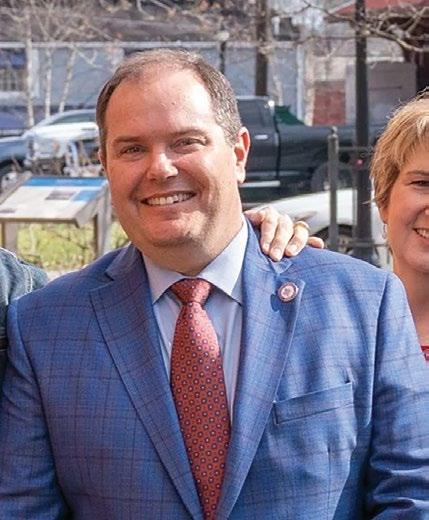
This story first ran in The Tennessee Lookout at tnlookout.com. It is being reprinted through Creative Commons license CC BY-NC-ND 4.0.

Grandpa
BY CHRISTOPHER L., CONTRIBUTOR VENDOR
“Today was a day to remember,” says I. “But why?” said Suzan. “Well, smiles were all around, the fish were swimming and jumping, and I even saw one do a flip. I even saw a penguin, little Suzan.”
“Yeah right grandpa.”
“No, it’s true,” says I. “Hmm, someone’s been sneaking Grandma’s biscuits again. I see you every morning putting them in your pocket,” says I. “Only you would see me do that.”
“I’ll tell ya what. Let’s make a biscuit deal. You get one biscuit every morning. Just don’t tell your grandma. And please don’t tell my brother where my fishing hole is. So little Suzy … do we have a deal?”
“Deal, Grandpa. One condition though you catch me that penguin!!!” The End.

SUBMITTED BY HOWARD P., CONTRIBUTOR VENDOR
There is a notorious bar in a country town known for too many drunks. There’s also a deputy that wants to make a name for himself. So he decides to wait out at a bar to catch a few drunks.
The bar is at full capacity, so he waits for the first drunk to come out. After about 20 minutes, he watches as a drunk stumbles about and falls over the other cars. As he is watching this drunk a few cars leave the lot. Then, the drunk even tries to get into a wrong car. As the deputy is watching all of this unfold a few more cars leave the lot. The drunk finally makes it to his car and after a few minutes he gets his key to open the door. He gets into the car and sits there for a few minutes while some more cars leave.
By the time he gets his car started the parking lot is empty of all cars except his. He gets his car into drive and proceeds to drive down the road. The deputy follows him for a few minutes before he lights up the drunk and pulls him over.
“OK I need for you to step out of the car. I need to administer a breath analyzer.”
The drunk steps out of the car. The deputy administers the breath analyzer, and the drunk blows a 0.0. “This ain’t right?” Says the deputy. “You blew a 0.0. Something must be wrong with my breathalyzer machine.”
To which the drunks replies, “Nothing wrong with your breathalyzer, I’ve been drinking coffee all night cause I’m the Designated Decoy.”
SUBMITTED BY JIM P., CONTRIBUTOR VENDOR
“The first step to madness is to think oneself wise.” - Fernando de Rojas
BY MARK N., CONTRIBUTOR VENDOR #6014
Is being poor a stepping stone or gateway to low self-esteem, self worth, or insecurity? Or can being poor lead to other negative lifestyles, criminal minded doubt in abilities, living a life of I’m here to stay in this condition, substance use?
I don’t really know, but I have heard many times rich people say we were poor as children, but didn’t know it until we grew up. Matthew 18:3 says, “Verily I say unto you,
Except ye be converted, and become as little children, ye shall not enter into the kingdom of heaven.” So is money everything from a worldly view? Yes, and at the same time, how can rich people state they didn’t know they were poor as children? In conclusion, I have learned some have suffered many trials in this life, some very terrific. In my case, I’m breathing with that I have hope, but only with the word of God.
BY JAMES “SHORTY” R., CONTRIBUTOR VENDOR
College games are played on Saturday afternoons. One of my teams are the Tennessee Vols. Let’s not forget their mascot “Smokey the Dog” and our favorite song, “Rocky Top.” My day starts with eating breakfast and getting ready to do my chores. I take a refreshing shower and put my favorite Vol jersey on. Then I relax and take a nap.
Let’s not forget our home team the Tennessee Titans! NFL games are played on Sunday, but first we have to get ready for church. Let’s
not forget our mascot, T-Rac the raccoon.
But overall let’s don’t forget we have Sunday church and we must socialize with people as I like to do, as you well know. And let’s not forget the preaching and etc. and I can’t forget my dues. After church it’s time to get in my lazy clothes and relax. And take a nap.
Oh yeah let’s sit and watch football with family. You may have someone playing. And also men just because it’s football season don’t forget your “Honey Do” lists.



“The Contributor” está trabajando con uno de los principales periódicos en español La Noticia para llevar contenido a más lectores en Middle Tennessee. Nuestros vendedores de periódicos han pedido durante mucho tiempo que nuestra publicación incluya contenido que apele al interés de residentes de habla hispana en nuestra comunidad.
“The Contributor” is working with one of the leading Spanish-language newspapers La Noticia to bring content to more readers in Middle Tennessee. Our newspaper vendors have long requested that our publication include content that appeals to the interest of Spanish-speaking residents in our community.

C u a n d o llamas a tu per ro por su nombre y levanta las orejas, o cuando un cerdo g r uñe en respuesta a una voz familiar, lo q u e o c u r r e e n s u s cerebros es sor prendentemente parecido a lo que pasa en el nuestro Un nuevo e s t u d i o d e i nve s t ig a d o r e s d e l a

Universidad Eötvös Loránd (ELTE) en Hung ría revela que humanos, perros y cerdos compar ten mecanismos cerebrales ancestrales que les per miten detectar y reconocer sonidos vocales Los hallazgos, publicados en la revista NeuroImage, re presentan la primera comparación directa de cómo estas tres especies de mamíferos, tan diferentes entre sí, procesan las voces El trabajo ar roja nueva luz sobre las profundas raíces evolutivas de la comunicación y subraya la impor tancia del sonido en la vida social
Por qué impor ta reconocer las voces Para las especies sociales, la capacidad de distinguir los sonidos vocales del r u i d o d e fo n d o c o m o e l d e u n a máquina, una gotera o el cr ujir de las hojas es esencial Más aún, identificar cuándo un sonido proviene de un miembro de la misma especie puede ser c r u c i a l p a r a l a s u p e r v ive n c i a y l a re producción
“Aunque las vocalizaciones transmiten i n fo r m a c i ó n mu y i m p o r t a n t e p a r a muchos animales, hasta ahora no estaba claro cómo se reflejan estas habilid a d e s e n e l c e r e b r o a l o l a r go d e especies de mamíferos tan distantes”, explicó Boglárka Morvai, investigado-

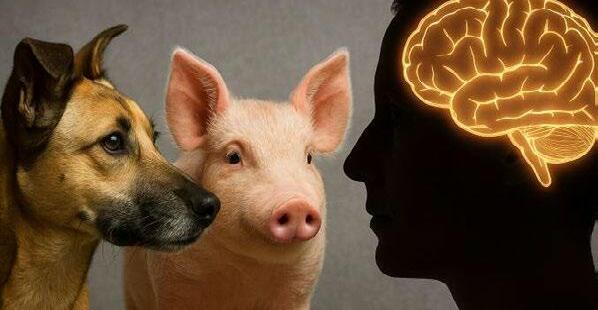
r a p o s d o c t o r a l d e l L a b o r at o r i o d e
Neuroetología de la Comunicación de la ELTE y primera autora del estudio
El experimento: oídos atentos y cerebros activos
Para responder a esta pre gunta, el equipo de investigación reclutó a participantes humanos, per ros de compañía y cerdos domésticos Todos participaron en el mismo experimento auditivo
Utilizando electrodos de EEG colocados suavemente en la cabe za, los invest i g a do r es r e g i s t r a r o n l a s r es p u es t a s eléctricas rápidas del cerebro mientras los sujetos escuchaban una variedad de sonidos: suspiros y tos humanas, ladridos de per ro, g r uñidos de cerdo y r uidos ambientales no vocales
Lo más impor tante es que los animales estaban despier tos, tranquilos y acompañados de sus dueños; no se utilizó s e d a c i ó n n i
especies tan diferentes al mismo estí-
Conoce tus derechos:
¿Que hacer en caso de una redada?
Mantenerse callado
Sólo dar nombre y apellido
No mentir
Nunca acepte/lleve documentos falsos
No revelar su situación migratoria
No llevar documentación de otro país
En caso de ser arrestado, mostrar la Tarjeta Miranda sados en la Quinta Enmienda de la Constitución, derechos de guardar silencio y contar con un ogado fueron denominados Derechos Miranda go de la decisión de la Suprema Corte de Justicia Estados Unidos en el caso Miranda vs Arizona, 4 U S 436, de 1966

mulo auditivo en tiempo real Dos pasos en el reconocimiento de sonidosLos resultados mostraron un fascinante proceso de dos fases
P r i m e r o, e n h u m a n o s y c e r d o s , c u a l q u i e r s o n i d o vo c a l ya f u e r a humano, canino o porcino generó un patrón distinto de actividad cerebral casi de inmediato, dentro de los 200 milise gundos después de escuchar el sonido Esto sugiere que las vocalizaciones se destacan como señales especialmente relevantes
Después, el reconocimiento de si el sonido provenía de la misma especie ap a r e c i ó m á s t a r d e , t r a s u n o s 3 0 0 milise gundos Esta se gunda fase se observó en las tres especies: humanos, per ros y cerdos
“Lo sor prendente es que estos patrones fueron muy similares a pesar de la g ran distancia evolutiva entre las especies”, añadió Morvai “Esto apunta a mecani s m o s n e u r o n a l e s c o m p a r t i d o s q u e probablemente se originaron antes de la divergencia de sus linajes, hace unos 90 millones de años
”No se trata solo de domesticación Uno de los hallazgos más inesperados fue que, aunque los per ros y cerdos que par ticiparon eran animales de compañía que viven muy cerca de los humanos, sus cerebros no mostraron u n a s e n s i b i l i d a d e s p e c i a l h a c i a l a s voces humanas
“Esto respalda la idea de que estas habilidades no se desar rollaron princip a l m e n t e p o r l a d o m e s t i c a c i ó n reciente, sino que for man par te de una
herencia mamífera antigua”, explicó Lilla Magyari, co-supervisora del estudio y ahora profesora asociada en la
U n ive r s i d a d d e S t ava n ge r, Nor ue ga En otras palabras, la capacid a d d e nu e s t r a s m a s c o t a s p a r a escuchar nos no proviene solo de miles de años de convivencia, sino de algo mucho más profundo y antiguo
Por qué es impor tante
El alcance de este estudio va más allá del compor tamiento animal Observar cómo los animales de compañía procesan los sonidos puede ofrecer nuevas
p i s t a s s o b r e e l f u n c i o n a m i e n t o d e l cerebro humano
“Al trabajar con animales que confían lo suficiente en nosotros como para p a r t i c i p a r e n e s t o s e x p e r i m e n t o s , p o d e m o s d e s c u b r i r m e c a n i s m o s b i o l ó g i c o s f u n d a m e n t a l e s q u e h a n m o l d e a d o l a c o mu n i c a c i ó n d u r a n t e m i l l o n e s d e a ñ o s ” , s e ñ a l ó A t t i l a
Andics, investigador principal del laboratorio
La investigación resalta no solo el valor de estudiar a los animales en entor nos naturales y sin estrés, sino t a m b i é n l a s e x t r a o r d i n a r i a s c o n e xiones que unen a las especies a lo largo del tiempo y la evolución
El panorama más amplio
Desde el llanto de un bebé hasta el ladrido de un per ro o el g r uñido de un cerdo, los sonidos vocales transmiten múltiples significados Pueden adver tir de un pelig ro, expresar emociones o for talecer lazos de confianza y per tenencia Este nuevo estudio sugiere que la capacidad de detectar e inter pretar estas señales no es exclusiva de los humanos ni una adaptación reciente: es un don ancestral heredado de nuestros ante pasados mamíferos
A medida que la ciencia continúa explorando cómo los cerebros reconocen y responden a las voces, una cosa queda c lara: las voces que nos rodean humanas o animales son mucho más que ruido Son parte de una historia evolutiva que ha dado forma a la manera en que nos conectamos, nos comunicamos y coexistimos
E n ví e n os s u s s u ge re n c i a s p or e - ma i l : ne ws@hispanicpaper com ó 615-582-3757

When you see a blind person with a seeing-eye dog, remember that this practice started with a young man from Nashville.
In 1927, Morris Frank was a 20-year-old student at Vanderbilt University and unhappy about his dependency on others to get around. Frank’s father read him an article in the Saturday Evening Post by Dorothy Eustis, an American woman living in Switzerland. In the article, Eustis talked about how shepherds there were training dogs to help blind people. She speculated that this practice could be perfected to help blind people on a full-time basis.
Excited by the idea, Frank wrote a letter to Eustis and received a receptive response 30 days later from Eustis. Frank then took a ship to Europe, where he trained extensively with a German Shepherd named Buddy. The training was hard. But after weeks with the dog, Frank could get around a nearby Swiss village holding tightly to a harness to which Buddy was strapped.
Frank returned to the United States with a goal of spreading the word about seeing-eye dogs. From the day he got off the ship, he made news. At one point, in front of a group of dumbfounded reporters, Buddy led Frank safely across a busy New York street. “She (Buddy) moved forward into the ear-splitting clangor, stopped, backed up and started again,” Frank wrote in a 1957 book called “First Lady of the Seeing Eye” — a book I highly recommend to every Tennessee fifth grader. “I lost all sense of direction and surrendered myself entirely to the dog. I shall never forget the next three minutes, 10-ton trucks rocketing past, cabs blowing their horns in our ears, drivers shouting at us . . . When we finally got to the other side and I realized what a really magnificent job she had done, I leaned over and gave Buddy a great big hug.”
When Frank returned to Nashville, people were amazed at the sight of the blind man and his dog navigating busy sidewalks.
BY BY BILL CAREY
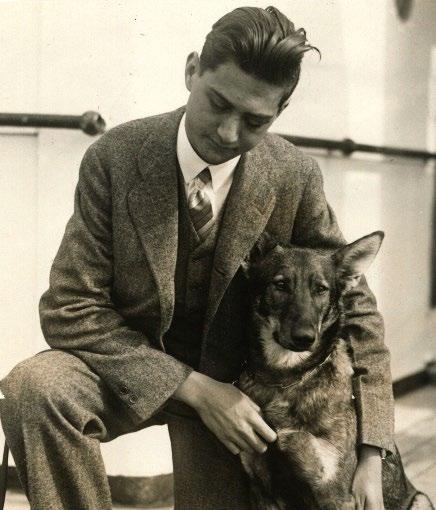
“Now strangers spoke freely to me,” Frank wrote. “In the old days, at a streetcar stop, for instance, I often envied two-sighted persons, who obviously did not know each other, their ease in striking up a conversation . . . With Buddy there, however, it was the easiest and most natural thing in the world for them to say, ‘What a lovely dog you have!’”

What astonished people the most was that Buddy had an ability best known as “intelligent disobedience,” which meant she would obey Frank except when executing that command would result in harm to her master. For example: if there was a low-hanging branch ahead on the sidewalk, Buddy knew to navigate around it.
Created by Mccollonough Ceili
Frank co-founded The Seeing Eye, an institution set up to train guide dogs and their blind owners. It operated in Nashville for two years and then moved to Morristown, N.J. (Partly for climate reasons; they found it to be too hot in Tennessee to train German Shepherds year-round.)
As Frank and Buddy traveled the nation, they opened doors for blind people of future generations. In that era there were no laws that required trains, hotels and restaurants to allow seeing-eye dogs to gain entrance. Almost on a daily basis, Frank would go into an establishment and be told that he couldn’t bring his dog in. His canned response: “I’m not bringing her in; she’s bringing me in!” One time, a railroad porter followed Frank and Buddy to their seats and proceeded to try to drag Buddy back out. However, in the words of Frank, Buddy then showed the porter her “beautiful teeth,” convincing him that it was best to leave the dog alone.
When Buddy died in May 1938, she received an obituary in The New York Times.
“Buddy had appeared on hundreds of lecture platforms and barked in response to applause; she had been received by Presidents Coolidge and Hoover and other notables; and she had been led into the homes of poor among the blind and had given them hope while they patted her and fingered her harness,” the obituary said.
Today, The Seeing Eye reports on its web site (seeingeye.org) that it has trained 17,000 dogs in its 94-year history. If you go to Morristown, N.J., you will find a statue of Tennesseans Morris Frank and Buddy — probably the only statue of a blind man and seeing-eye dog in the world.
Bill Carey is the founder and executive director of Tennessee History for Kids, a non-profit organization that helps teachers cover social studies. He’s also the author of several history books and a former Capitol Hill reporter.
How many words can you make using the letters? Letters can be used once per word.
Wow, the parking lot is so packed today. Oh look, Virgo, there’s a space! Why’d you drive past it? I mean, sure it’s a long walk to the door but … Oooh, there’s another one! Come on Virgo, that was a good space. And now somebody else got it. We could walk through the whole lot faster than we’ll find something good by driving around. Hey — that guy’s pulling out! Ahhh, Virgo! You’re gonna have to take one of these spots. I know you want it to be perfect, but we didn’t come here for the parking! Hey, there’s one! I’m starting to think you’d rather keep looking for the right space than take something that works and get on with the day. There’s one!
I’ve been reading that Mysterio family history my dad wrote after his mom died. I think he was getting worried that nobody else knew those old stories so he got on the phone to his few remaining cousins and tried to write down all the facts. It’s mostly the story of wanderers and farmers, maybe a couple of poets and a few amateur astrologers in that long line. It seems like they took care of each other pretty well, helped out their neighbors, and did the best they knew. Anyway, Libra, you’re not the first one to feel how you’re feeling. You’re not even the first one to do what you did. Check-in with a source who remembers your story from before you do. You might find out you’re just another wanderer in a good line.
Do you think you’ll get that new phone, Scorpio? They say it’s twice as fast as the one you’re using now. It’s got a better screen and a better camera and if you’re lonely it will be your friend. I was saving up for one, but then I remembered that I stare at my current phone more than I wish I would. And if the new one is twice as fast, I don’t think I’ll stare half as long. I think I’ll just stay twice as distracted. And when staring at my phone makes me lonely and I need a friend, the phone I’ve got now will let me call you. I’m not even sure if the new one does that. Anyway, Scorpio, make sure the tool you’re picking up is the right one for the task you hope to accomplish.
So there I was, Sagittarius, standing in the condiment aisle trying to pick out a mustard. You get it, right? The classic yellow is great, but my sandwiches are just a little boring lately. And I see the spicy brown one, but last time I got that, something was off and it tasted too much like white vinegar which is a different kind of intensity than I’m looking for in a mustard and just then a jarring announcement came over the speaker “Please stay vigilant and protect your personal belongings while shopping.” And in that moment, Sagittarius, I knew I didn’t want to stay vigilant. I didn’t even want any more personal belongings. The mustard at home is fine. And with as little vigilance as I could muster, I walked out the front door. Don’t let the voice on the overhead speaker tell you what to do with your attention or your resources.

I always sleep with a baseball bat under my bed just in case I get real athletic in my sleep. I mean, I never could hit a ball in high school P.E. And I also can’t really catch or throw, but maybe if I can get some good rest, and if I wake up with the right equipment nearby, I’ll be better at all this tomorrow. I know you’ve been doing some of the same, Capricorn, hoping that the right supplies and enough rest will break you through to the big leagues. But what I’m starting to wonder is if there’s another element we need. If maybe we just need more practice doing the things we dream about doing.
Some people say there’s a place you are before you’re here. Maybe sort of a cosmic waiting-room for consciousness. And those people say we’re perfect there and we know all about everything and then when our number gets called we go and we get born. We forget what we knew and we start out empty again. I’m not sure about all that, Aquarius, but I like the idea that you’re here because you wanted to be. And that the problems that seem insurmountable right now are problems you knew about back then and you thought “yeah, I can handle that.” Even if there’s not a place like that, Aquarius, I still think you’ve got what you need. Even if that’s just the ability to ask for more help.
I was never great at marching band, Pisces. I could do the marching part OK most of the time. And I could do the band part OK some of the time. But I could never really pull off the marching and the band at the same time. Mostly I’d just try to keep up with everybody and stay in step and if a few notes came out the end of my horn on the way they usually weren’t the right ones. I only mention this because you’re doing great at the band part lately, Pisces. That solo you just played was stunning. It’s just that the rest of the band marched onto the field 20 minutes ago and you’re still here. I don’t want you to stop playing, Pisces, I just want to make sure you’re in the right place to be heard.
I grew a few tiny pumpkins in my garden this year. They’re still ripening, I guess. Turning from tiny green lumps to tiny orange ones. And they’re not the future jack-o’-lanterns of America that I was hoping for, but they’re what the vine had to offer this year. And it’s good to realize that even if we can’t force things to come out just how we wanted, we — at least — may be the pumpkineers of our own patches. And whatever gourds may come, we know we gave what we had to give. And there will be another growing season sooner than we fear.
Do you guys think all that stuff really happened? I mean, sure, I can believe those kids were smart enough to avoid getting caught by government agents. And I think hiding a short, wrinkly, long-necked magical space-alien in a pile of stuffed animals would probably work. I even buy the thing where he made their bikes fly across the forest to escape. I’m just not sure about the part where everything works out in the end. I mean, things got really bad there for a while and I wonder if they just stuck that happy ending on there to make us all feel better. Anyway, Taurus, I hope things really do work that way. And if they do, I think they might for you.
My uncle got a pizza oven for his birthday and now all he does is stay home and make pizza. It’s all he wants to talk about, too. The other day he said to me, “Hey! Have you ever tried nectarines on a pizza? With crumbled feta?” And now the answer is, remarkably, “Yes.” He used to be really into cycling and painting and birdwatching but now it’s just pizza. Anyway, Gemini, I hope you’re having an interesting enough week, but if you’re tired of doing the same old things you did last week, it’s fine to mix things up a little bit. Like, have you ever had a pizza with sweet potatoes and two layers of black-bean sauce? You haven’t? Maybe you should.
I was on an airplane a couple weeks ago. The flight was packed and there was a storm at home so they rerouted us to the Salt Creek Airport. Nobody wanted to go to Salt Creek, but we landed there and they announced that there was no incoming plan from air traffic control and that they couldn’t let us off the plane. Everybody was silent and confused. I could see people shifting around in their seats, irritated. And then I heard a voice from the window seat next to me. They said “Do you want to see a card trick?” Our whole row shifted from frustrated and anxious to interested. We were only two hours late getting home, but by the time we got there we knew each other’s names and were glad for the company. It might be a good week to learn a card trick, Cancer. That or find another way to share and connect when fates are unknown.
I can’t get enough of this corn on the cob! It’s so good. Just some butter, a little salt and pepper and it’s perfect! Is anything else available on the cob, Leo? No? Just corn? Huh. It seems like our society would do better if we had more things on the cob. We could have joy on the cob. Maybe forgiveness on the cob. Perhaps a deep sense of internal well-being on the cob. Don’t laugh, Leo. I think people would like it. But until the technology exists to cob all the things we don’t have enough of, we’ll just have to settle for corn on the cob. With maybe a side of loving-self-awareness just loose on the plate. Ew. Don’t let it touch my roll.
Mr. Mysterio is not


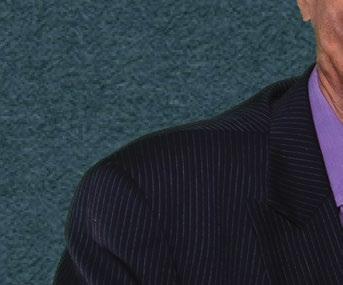





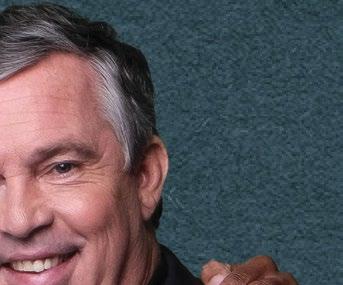


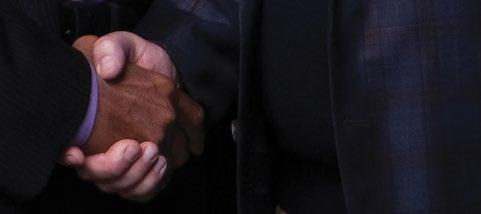












Glancing at the top films currently streaming on Amazon Prime, there’s the sense that we’re already in deep autumn at the height of scary movie season. American Psycho, Smile 2, Abigail, and the great first season of the Hannibal series are all trending on Amazon Prime. It’s barely September, but I’ve been craving screen screams since the end of July, and sometimes one must go frightfully with the flow.
In fact, the werewolf stands in marked contrast to modern society’s murderous taste for war, its dehumanizing capitalism, and its rape of the natural world. The curse of the werewolf is not a curse of death. The werewolf’s curse is too much life.
That’s a quote from the Disinformation World News podcast way back in 2009. My “Insomnia” segments were a regular feature of the show. I wrote and produced essays about conspiracy theories, archaeological mysteries, mythology and folkloric creatures like werewolves. I love werewolves, and when I saw that Wolf Man (2025) was now streaming on Amazon Prime, I knew my scary movie season was going to begin.
Blake Lovell (Christopher Abbott) is a writer and a stayat-home dad living in San Francisco. Blake is estranged from his strict survivalist father, Grady, and when he gets news of the old man’s passing, Blake inherits his childhood home and moves his family to rural Oregon for the summer. The film is a reboot of the 1941 Universal Monster classic, The Wolf Man. It follows Blake, his workaholic journalist wife Charlotte (Julia Garner), and their young daughter Ginger (Matilda Firth) as they arrive at the remote farmhouse. On their first night, an unseen creature attacks their van in the woods, forcing them to barricade themselves inside the house.
The movie sets its tone in a flashback to Blake’s childhood when he first encountered the monster on a hunting expedition with his father. The scene establishes the dangerous nature of the Oregon woods and introduces the film’s theme of fathers as protectors of their families. Blake is wounded in the attack at the farmhouse and begins to exhibit strange symptoms — he experiences heightened senses and erratic behavior. As the night progresses, his worsening transformation into the title creature shifts focus to Charlotte. She steps up to protect Ginger as Blake becomes more wolf than man.
The most unique aspect of Wolf Man is that the central events unfold over a single night. The family’s isolation in the dark, foggy woods and the farmhouse’s claustrophobic setting feel like a contemporary American refitting of the eerie British gothic atmosphere of the original film. As Blake’s transformation unfolds slowly over every scene, the film’s creative makeup effects evoke Cronenberg’s body horror in The Fly more than the visceral transformations of American Werewolf in London or The Howling. With monsters roaming inside and outside the farmhouse, Charlotte and Ginger are terrorized and paralyzed with the kind of uncertainty you only find in a Clash song:
If I go, there will be trouble
And if I stay, it will be double
The film is directed and co-written by Leigh Whannell. Whannell’s The Invisible Man (2020) was a remarkable remake of that Universal Monster classic, and I had high hopes for how he might update The Wolf Man. Abbott’s dark broodiness recalls Lon Chaney Jr.’s demeanor in the original, and Julia Garner is always an actress worth
BY JOE NOLAN, FILM CRITIC

watching. Whannell uses audio and visual effects to shift between Blake’s increasingly canine point of view and Charlotte’s perspective as a loving wife and mother in a crisis.
Wolf Man is at its best when it focuses on being a scary picture about a monster in the woods. Whannell’s attempts to explore the couple’s troubled marriage only make the characters less likable, and the overarching metaphor about fathers protecting their children feels like a clumsy attempt to shoehorn more unnecessary
family drama into a horror flick. This movie has a dark forest where a werewolf lives, and it’s an eerie, fun fright picture when it embraces its genre instead of struggling to transcend it.
Wolf Man is streaming on Amazon Prime Joe Nolan is a critic, columnist and performing singer/songwriter based in East Nashville. Find out more about his projects at www.joenolan.com.
